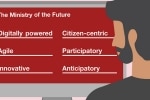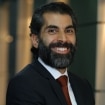Gulf Cooperation Council (GCC) states must revamp their systems for educating students with disabilities so that these students can improve their learning experience, live to their full potential, and contribute to society. However, there are numerous attitudes and obstacles that lead to underestimating the true level of need. Fortunately, GCC states recognize that need is acute and they share a commitment to the well-being of these students.
Although each country has distinct regulatory and societal requirements and is at a different stage of policy development, all must adopt a learner-centric approach for students with disabilities. This approach has four key elements:
- Individualized intervention. There must be more awareness among teachers and parents so they recognize when students have disabilities and understand how to address those needs. Early detection allows professionals to correctly assess students’ needs based on diagnostic standards, and to develop an individualized educational plan (IEP) for the students so their educational needs are met.
- A learning ecosystem. There must be fully or partially inclusive educational settings to socialize students with disabilities and educate mainstream students about those with disabilities. Governments should also provide other learning environments, such as specialist schools, to fit learners’ specific educational demands.
- A supportive ecosystem. To ensure the right balance of services, fully or partially inclusive schools should offer basic support resources for students with mild and moderate disabilities, and partner with external service providers such as medical specialists to deliver students the precise level of service necessary. The involvement of parents and caregivers outside the school setting is critical to creating this supportive ecosystem.
- Assistive technologies. Education systems should leverage technology advances to improve access to education.
To implement this approach, governments must launch awareness campaigns. They must harmonize responsibilities among entities and ensure the development and enforcement of policies and regulations, including diagnostic guidelines and professional qualifications.
Recognizing the problem
A consensus is growing among GCC states that they must revamp their systems for educating students with disabilities so that these students improve their learning experience and live to their full potential. However, there are numerous obstacles to achieving this, and success depends on a large ecosystem of stakeholders coalescing to change the status quo.
For starters, there are several reasons that GCC countries tend to underestimate the number of students with disabilities: poor awareness and assessment by teachers and parents, unclear diagnostic standards to detect and classify disabilities, and a socially ingrained reluctance to acknowledge disabilities. This masks the level of need.
Even when there is an early and correct diagnosis, educational and support services are sometimes deficient. There is a general lack of qualified special education professionals, for several reasons. Often university training for teachers falls short of providing specialized knowledge of various disabilities, such as autism. Some teachers do not develop strategies to teach students with disabilities.
Adding to the educational challenge is that only rarely do teachers receive professional development training to stay abreast of the latest technologies and methodologies, and their expectations of students
with disabilities are frequently too low. Moreover, teachers may not receive the necessary support from therapists and other specialists to provide the right services.
Success depends on a large ecosystem of stakeholders coalescing to change the status quo.
Another obstacle to educating students with disabilities effectively is insufficient planning and coordination among entities in the public, private, and third sectors. This results in the duplication of some services while others are not provided. GCC countries also do not take advantage of the full potential of new assistive technologies — devices such as touchscreens that help people with disabilities perform daily activities with greater independence.
Fortunately, GCC states recognize these shortcomings. Although each country is approaching the situation from a different angle, they all share a commitment to students with disabilities, as enshrined by the International Covenant on Economic, Social and Cultural Rights. In 2014, GCC countries adopted a Human Rights Declaration which stated, in part, that “all people with special needs have the right to comprehensive care and shall be rehabilitated and consolidated into the community” and “every person has the right to an education.” Today, all GCC countries are pursuing numerous initiatives, including drafting national strategies/policies and passing laws, as well as establishing committees to bring attention to the issue, and encouraging the private sector to participate in their efforts to better support students with disabilities.
Conclusion
By adopting a learner-centric approach, governments will fulfill an obligation to care for all their citizens and bring quality of life, economic, and societal benefits to students with disabilities and their families. By being engaged in their education and then the workplace, these individuals will be more independent with a greater sense of purpose, which makes them financially and mentally healthier.
The benefits to the economy and society are also significant. By improving education and better integrating these students into the workforce, the government’s long-term burden is reduced. A proper approach to special education means that these individuals are more likely to become capable of earning a living, paying their way, and contributing their talents to society, instead of the government shouldering the costs of healthcare and social care over their lifetime.



















Menu